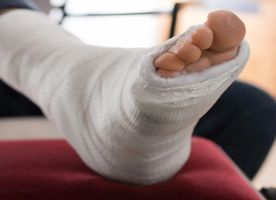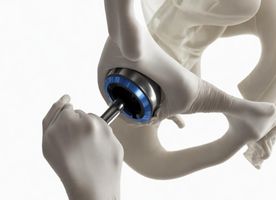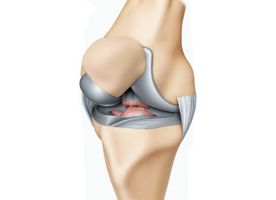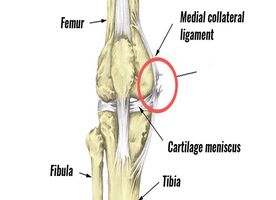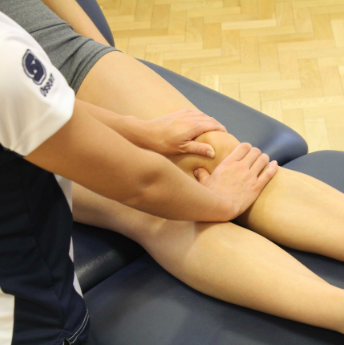Knee Ligament Surgery (PCL) in South Korea
Search and Compare the Best Clinics and Doctors at the Lowest Prices for Knee Ligament Surgery (PCL) in South Korea
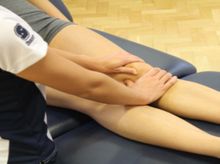



































































































































No Time?
Tell us what you're looking for and we'll reach out to the top clinics all at once
What does the Procedure Involve?
A posterior cruciate ligament can be performed as a minimally invasive procedure. Your surgeon will start by making small incisions around your knee. Then paths will be created in the incisions to insert surgical tools. The surgery can be done to:
-
Repair the PCL – if there is enough ligament that is still intact, your surgeon will secure the damaged ligament back onto the bone. Sutures will be used to repair any tears in the ligament. Sutures will also be used to secure the ligament to the bone/.
-
Reconstruction – during reconstruction, tendon tissue from a donor cadaver or another part of your body is used. Any damaged ligaments that remain in the knee are removed from the knee joint. Your surgeon will create small incisions on the surface of the shinbone inside the knee and the thighbone. Then, your surgeon will thread the additional tendon through the incisions and uses staples or screws to secure it. Your surgeon will test your knee’s range of motion once the graft is securely in place.
When either the repair or the reconstruction is completed, your surgeon will close the skin with stitches and place bandages on the knee.
There are two types of anesthesia that may be used during PCL: spinal anesthesia and general anesthesia. With spinal anesthesia, you will be awake throughout the procedure but won’t feel anything in your legs. You may also be given a sedative to help you relax. With general anesthesia, you will be asleep and unaware of anything throughout the procedure.
How Long Should I Stay in South Korea?
The length of time required for Knee Ligament Surgery (PCL) in South Korea fluctuates depending on various considerations. These encompass the kind of anesthesia implemented, the general status of your health, and the specific surgical method employed. In most instances, patients are permitted to leave on the same day if the operation was carried out with local anesthesia or as a day procedure.
Nevertheless, a handful of patients may be required to remain in the hospital for several days, particularly if the operation was intricate or if they possess other pre-existing health complications. In addition, it's advised that patients remain in close proximity to the hospital for a minimum of two weeks post discharge, as the initial consultation following the surgery generally transpires during this period.
PCL surgery usually takes around 2 hours to complete. Typically, you need to stay in the hospital for at least one night, plan to stay in South Korea for at least 1 or 2 weeks after surgery to allow time for your body to heal and to attend follow-up checkups.
What's the Recovery Time?
Recovery time following a Knee Ligament Surgery (PCL) varies depending on several individual factors, including your overall health, the severity of the ligament damage, and the specific type of procedure employed. You can gradually return to your normal activity as recommended by your surgeon. For office work, you may be able to return to work in 2 to 3 weeks. However, you need to wait at least 3 months if you do physical work. You can generally start taking part in sports within 6 months. Complete recovery can take around six to nine months.
What About Aftercare?
The aftercare for PCL will focus on rehabilitation and pain relief. You will need to take part in formal physiotherapy after surgery. The first few physiotherapy appointments are designed to help you control the swelling and pain. Within three weeks, your physiotherapist may begin to focus on a range of motion exercises. It is important that you visit your doctor and physiotherapist on a regular basis until you recover completely. You can always choose to do the physiotherapy at home instead of in South Korea. Physiotherapy is important to get movement, reflexes, and strength back into your knee.
Besides physiotherapy, the following are the aftercare instructions of PCL surgery:
-
Immediately after surgery, your surgeon may also prescribe pain medication. Make sure to take your medications as and when prescribed by your surgeon.
-
You may need to use a knee immobilizer and crutches during early recovery to decrease stress on the knee but keep you mobile.
-
While resting, put pillows below your knee to keep it elevated above your feet.
-
Avoid climbing up the stairs.
-
Eat healthy nutritious food to speed up your recovery.
-
Use ice packs to reduce swelling.
-
Ask family members/friends to help you and look after you during the early stages of recovery.
-
Follow all post-operative instructions from your surgeon.
What's the Success Rate?
The results of Knee Ligament Surgery (PCL) depend on many things. These include how skilled the doctor is, how bad the ligament injury is, and how well the patient follows their recovery plan. But generally, Knee Ligament Surgery (PCL) has a good success rate, with many people getting their knee strength back after the surgery. PCL surgery has a high success rate of about 90%.
Remember, a good surgery result isn't just about the operation itself. It also depends a lot on the patient doing their part during recovery. This means sticking to their exercise plan, taking their medicine, and keeping all their appointments with their doctor.
Are there Alternatives to Knee Ligament Surgery (PCL)?
If the injury is severe or if you have persistent knee instability despite other treatments, you would not be suitable to have other alternatives than surgery. However, in most cases, surgery is not required if the injury is not severe. In this case, you have the option to undergo physical therapy. During physical therapy, a therapist will teach you exercises that will help improve your knees function and stability, as well as to make it stronger. You can also take over-the-counter (OTC) pain relievers to help relieve pain and reduce swelling.
This information has been accurately sourced and verified by a medical professional for its accuracy, however, we strongly recommend you to consult with your doctor before pursuing medical procedures overseas.






























